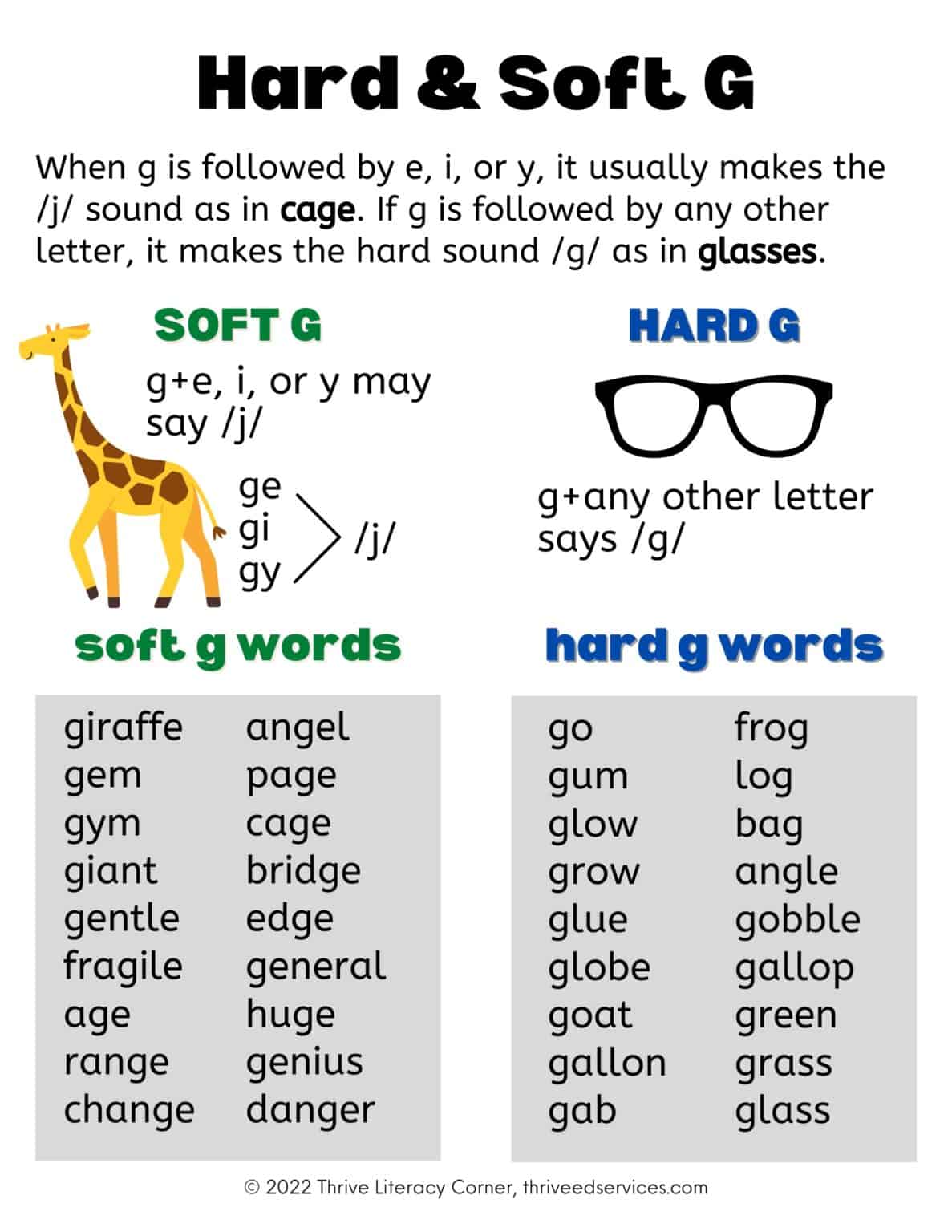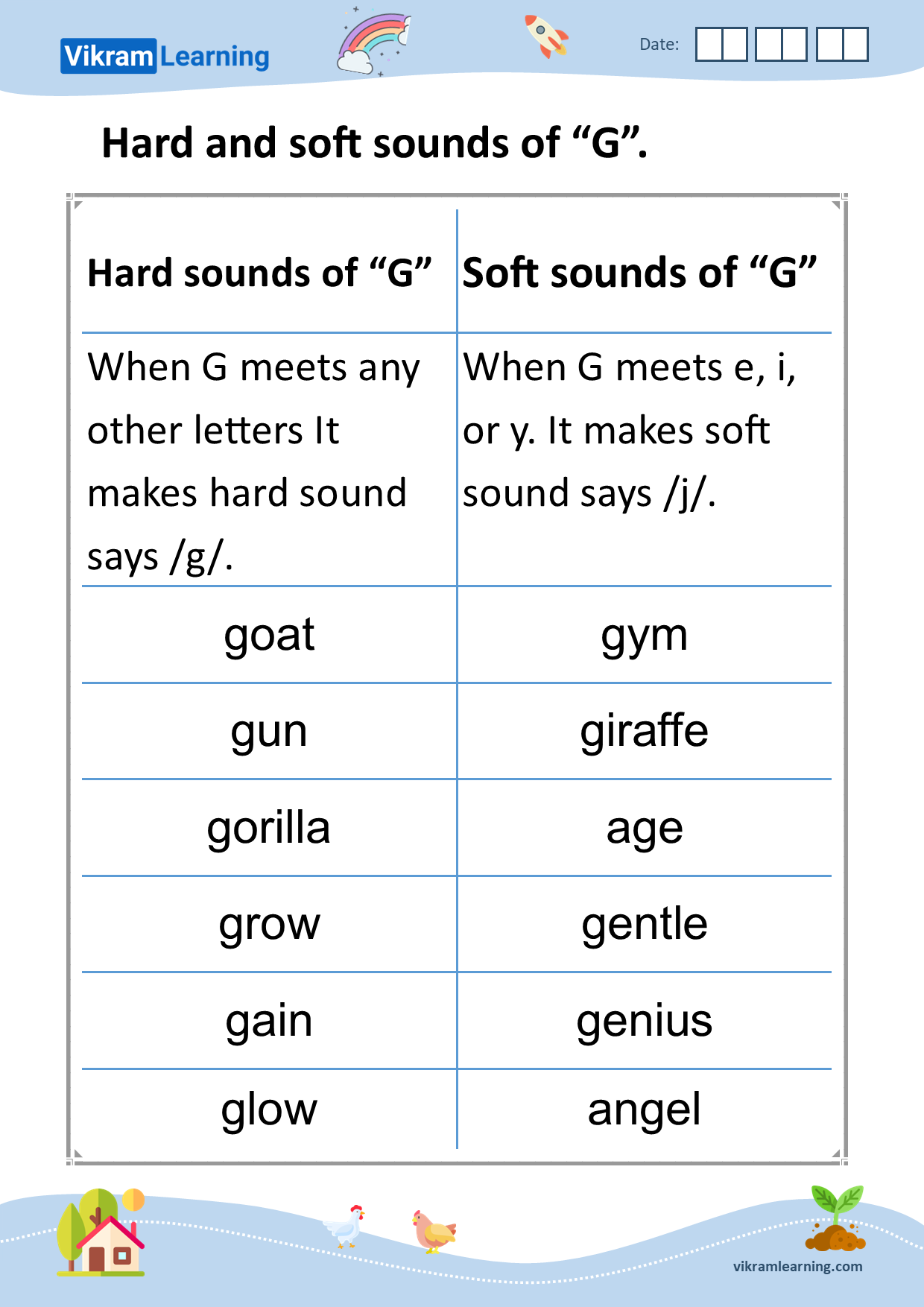Mastering G Sounds: A Comprehensive Guide For Hard And Soft Pronunciations in English Language
Have you ever wondered why the letter “g” can sound so differently in various English words? This letter’s unique ability to produce both hard and soft pronunciations often poses challenges to both native and non-native speakers alike.

spelling words third grade – Source lessonanswerlibboyle.z22.web.core.windows.net
If you struggle to distinguish between the “g” in “gem” and the “g” in “giant,” you’re not alone. This blog post will serve as a comprehensive guide, providing a thorough understanding of the intricacies of “g” pronunciations.

Teaching the 2 Sounds of G: Hard G and Soft G + FREE Charts – Source thriveedservices.com
Mastering the “G” Pronunciations
The key to mastering “g” pronunciations lies in recognizing the phonetic differences between the hard “g” and the soft “g.” The hard “g” is pronounced with the back of the tongue touching the soft palate, creating a velar sound, as in “go,” “dog,” and “bag.” Conversely, the soft “g” is pronounced with the middle of the tongue touching the hard palate, resulting in a palatal sound, as in “gem,” “giant,” and “giraffe.”

Soft C and Soft G – Orton Gillingham (Hard and Soft C and G) | Made By – Source www.madebyteachers.com
History and Myth of “G” Pronunciation
The history of “g” pronunciations is fascinating. In Old English, the letter “g” always had a hard sound. However, during the Middle English period, the soft “g” emerged due to the influence of Norman French. This led to a complex set of rules governing “g” pronunciation, based on the word’s origin and position within the word.

Hard and Soft G and C sounds – Simply Kinder – Source www.simplykinder.com
Unveiling the Secrets of “G” Pronunciation
Mastering “g” pronunciations requires an understanding of the following rules:
– Before “a,” “o,” “u,” and consonants, “g” is usually hard (e.g., “game,” “dog,” “bug”).
– Before “e,” “i,” and “y,” “g” is typically soft (e.g., “gem,” “giant,” “gypsy”).
– In some words of French origin, “g” is silent (e.g., “gnat,” “resign”).
Tips for Perfecting “G” Pronunciation
Here are some tips for improving your “g” pronunciation:
– Practice pronouncing words with both hard and soft “g” sounds separately.
– Listen carefully to native speakers and imitate their pronunciation.
– Use a pronunciation dictionary or online resources to check your pronunciation.
Fun Facts About “G” Pronunciation
Did you know that the “g” in “gneiss” is silent? This is because the word is derived from a German word where the “g” was not pronounced.

Download hard and soft sounds of g worksheets | vikramlearning.com – Source vikramlearning.com
Mastering “G” Pronunciation in Context
To truly master “g” pronunciations, it’s essential to practice using them in context. Read aloud passages and sentences, paying attention to the pronunciation of “g” in different words. This will help you develop a natural and fluent pronunciation.
What If You Mispronounce “G”?
If you mispronounce “g,” it may affect the clarity of your speech and make it difficult for others to understand you. Therefore, it’s important to make an effort to pronounce “g” correctly.

Hard and Soft Sounds of C and G – Make Take & Teach – Source blog.maketaketeach.com
Listicle of “G” Pronunciation Tips
Here’s a listicle of additional tips for mastering “g” pronunciations:
– Use tongue twisters such as “Theophilus Thistle, the successful thistle-sifter, in sifting a sieve of unsifted thistles, thrust three thousand thistles through the thick of his thumb.”
– Sing songs that feature words with both hard and soft “g” sounds.
– Record yourself speaking and listen back to identify areas for improvement.
Question and Answer
Conclusion of Mastering G Sounds: A Comprehensive Guide For Hard And Soft Pronunciations
Mastering “g” pronunciations is not as daunting as it may seem. By understanding the rules and practicing regularly, you can develop a clear and confident pronunciation. Remember, the key is to be patient and persistent, and you will eventually achieve your goal of mastering this challenging aspect of English pronunciation.